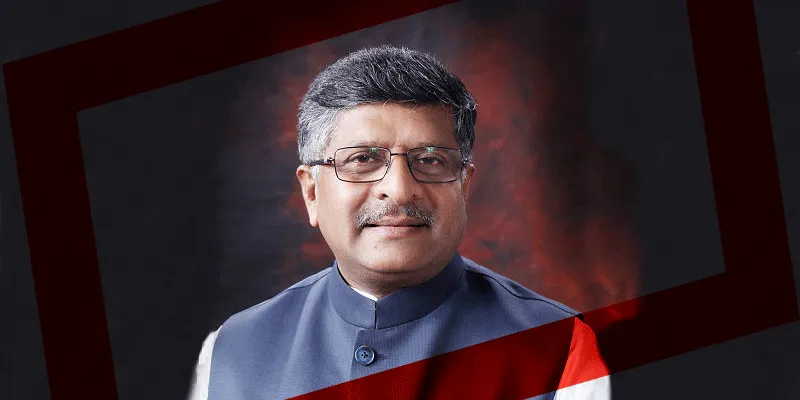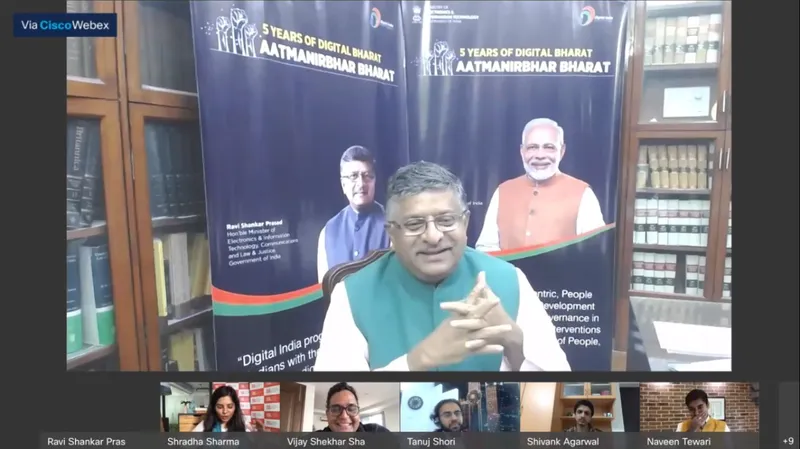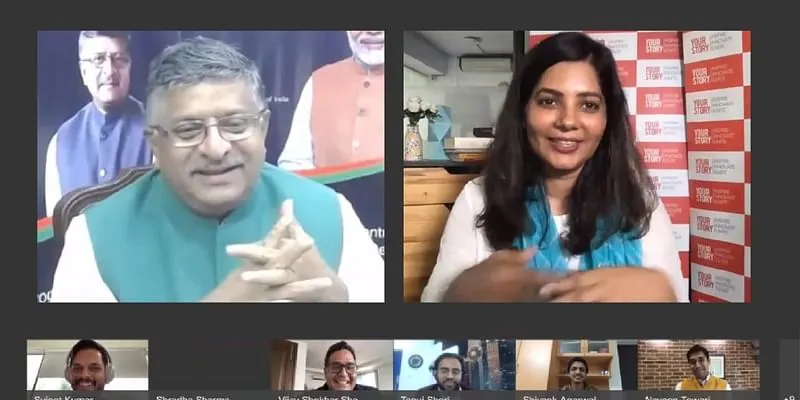Inclusion central to my approach in digitising India, says Shri Ravi Shankar Prasad at YourStory Digital India townhall
The digital-first model in India will succeed only if the common man has a stake in the government's endeavour, IT Minister Shri Ravi Shankar Prasad said during YourStory's Digital India town hall.

Union Minister for Electronics and IT, Law and Justice and Communications Ravi Shankar Prasad
July 1, 2020 marks five years since the Government of India, led by Prime Minister Narendra Modi, launched the ‘Digital India’ initiative in an effort to encourage people to adopt technology as a means of self-empowerment, improve infrastructure, and boost investments in the tech sector of the country.
With Honourable IT Minister Ravi Shankar Prasad at the helm of this programme, the government over the last five years has focussed on not only empowering the urban areas of the country, but also the rural and remote sections by introducing high-speed internet connectivity, encouraging digital upskilling, and using tech to solve grassroots-level problems.
In an exclusive Digital India townhall organised by YourStory for tech entrepreneurs, Shri Ravi Shankar Prasad, Minister for Communications, Electronics & Information Technology and Law & Justice, emphasised the importance of digital inclusion and how it's central to the government's Digital India programme.
“Digital India is for digital inclusion. Unless the common man has a stake in Digital India, it will not succeed,” said Ravi Shankar Prasad.

Shri Ravi Shankar Prasad in conversation with tech entrepreneurs on YourStory's Digital India Townhall
At the Digital India Townhall, the Minister explained that the Digital India programme is designed to empower Indians with the power of technology, bridge the digital divide, and ensure digital inclusion.
Now, five years after the launch of Digital India, there is a "sense of fulfilment" at the achievements made through the government's Digital India drive, Union Minister Ravi Shankar Prasad said, noting that now "no leader opposes Digital India," having seen its benefits.
Programmes targeted for rural areas such as the common services centres (CSC), which have helped create digital entrepreneurs, and One Nation - One Ration card, which has helped unify and centralise the ration card infrastructure, among others, have helped the government blend technology into the very fabric of the country, the Minister said.
MyGov.in — a portal that enables citizens to engage in policy discussions, and DigiLocker — a safe facility to store important e-copies of government-issued documents, along with other online platforms such as e-hospital, National Scholarship Portal, and e-education are some more tools the government created to further its vision of making India digital-first.
Other successful series of measures undertaken as part of the ‘Digital India’ movement include Jandhan-Aadhar-Mobile (JAM), which has provided digital identities to more than a billion citizens, and helped those who did not have any official documents get access to financial services.
As of June 30, nearly 125.84 crore people had been issued Aadhar cards, according to latest government estimates.
In fact, even in the past four months since the coronavirus pandemic gripped the nation, the strides made by the Digital India programme has been instrumental in the smooth-running of the country. Initiatives such as COVID-geofencing, the Aarogya Setu app, e-office and video conferencing solutions such as eFile Management, knowledge management, video conferencing in courts and RTI hearings, virtual classrooms, among others, have eased some of the challenges posed by the nationwide lockdown and in the new normal of contactless interactions.
The self4society.mygov.in website - a platform that was launched to help Indian citizens channelise their efforts towards social causes - was pertinent in mobilising funds and volunteers to bolster the government’s efforts in fighting COVID-19.

Now in the new normal, Indian startups have an important role to play in furthering the government's mission to become more tech savvy and ensure digital inclusion for everyone, especially farmers across the country.
He called on the startup ecosystem to focus on building solutions for digital education, healthtech, as well as homegrown apps following the ban on 59 Chinese apps on Monday.
Edited by Tenzin Pema








